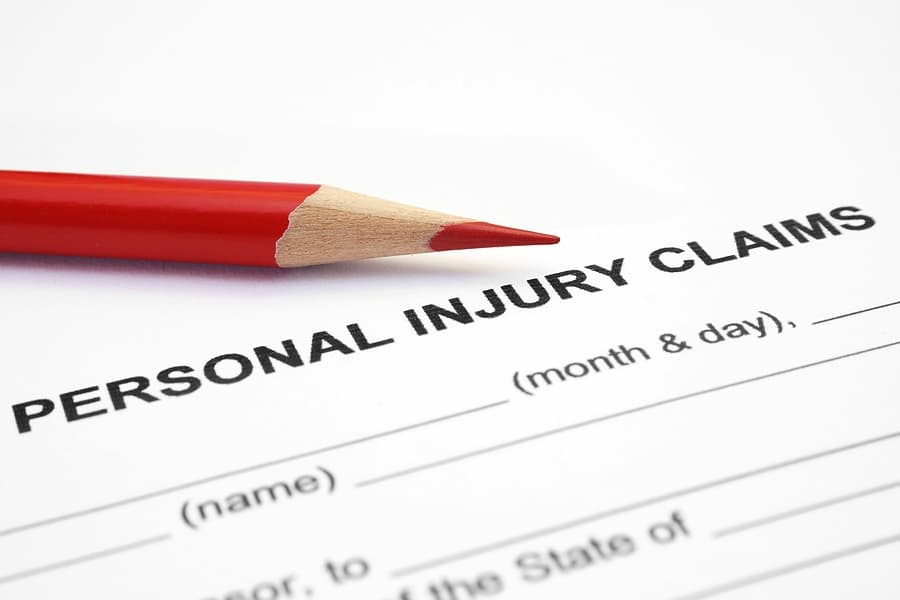If you’ve suffered injuries at the hands of another, you may have legal options. A personal injury lawsuit can pave the way to financial recovery for your injuries and other losses.
Continue reading to better understand what emotional distress means, how emotional distress relates to personal injury lawsuits, and how you could receive money from the party that caused you distress.
Is Emotional Distress Considered a Personal Injury in California?

Yes, under California law an individual who suffers emotional distress as a result of someone else’s negligence or intentional act may be able to seek compensation for their losses through a personal injury claim.
Injured? Speak with An AttorneyCompensation for emotional distress may be available to you, among other economic and non-economic damages. Emotional distress after an accident can take a toll on your life and relationships; therefore, you should have the right to receive financial compensation.
After an accident or injury, discuss your situation with a personal injury lawyer. An attorney can investigate your claim, determine how much your case is worth, and work toward a fair settlement on your behalf.
What to do about taking action in getting your compensation?
Taking the first step and getting in touch with a qualified professional lawyer will put you ahead in the process. A lawyer will be able to discuss the options you have and how you will benefit from taking action.
What is Considered a Personal Injury in California?
In the U.S., different laws apply to personal injuries versus property damage. A personal injury entails injury to your person, including to your mind or emotions.
Personal injury lawsuits hold a responsible party accountable for their actions while providing compensation for a victim’s injuries and other losses.
Sustaining an injury does not always warrant legal action. However, if someone else is responsible for your harm, this could be considered a basis for filing a personal injury lawsuit.
Personal injuries can result from many different types of accidents and incidents, including:
- Car accidents
- Truck accidents
- Motorcycle accidents
- Bicycle accidents
- Pedestrian accidents
- Dog bite incidents
- Drunk driving accidents
- Slip and fall accidents
- Brain injuries
- Medical malpractice
These and other situations can result in a valid claim for personal injuries.
If you sustain injuries caused by another person or entity, it is best to discuss your situation with a qualified personal injury attorney. A lawyer can review your case to determine the best course of action.
What Types of Damages Are Available for Personal Injury Claims?
Under California law, if you suffered harm from an unlawful act or omission of another, you may recover damages from this person. Damages serve as compensation for the injuries, tangible losses, and intangible losses that result from your accident.
There are generally two types of compensatory damages for personal injury cases: economic and non-economic damages.
Economic damages stem directly from your accident. These losses are easily quantifiable, so they’re easier to prove.
They can include:
- Medical expenses, past and future
- Rehabilitation costs
- Lost wages
- Lost earning capacity
- Property damage
While non-economic damages are also directly related to your case, they’re more difficult to prove and quantify.
They can include:
- Pain and suffering
- Mental anguish
- Emotional distress
- Permanent disfigurement
- Loss of enjoyment of life
In special cases, plaintiffs may qualify to receive punitive damages. Under California law, a plaintiff may be entitled to punitive damages if a defendant’s actions resulted from “malice, oppression, or fraud.” This means the defendant intended to harm or deceive the plaintiff, or they had no regard for the plaintiff’s safety.
While compensatory damages compensate you for your losses, punitive damages punish and deter. They punish the defendant for their conduct and deter other individuals from acting in such a manner in the future.
Calculating damages is often one of the most challenging parts of a case. Moreover, if you’ve never experienced handling a personal injury claim, you’re likely unaware of what you truly deserve.
A personal injury attorney will examine the details of your case to determine how much your case is worth and work diligently to get you maximum compensation for your losses.
What Is Emotional Distress?
The law recognizes emotional distress, particularly in personal injury cases.
Emotional distress is “a highly unpleasant emotional reaction which results from another’s conduct and for which damages may be sought.” Many people experience significant distress when another person injures them. Therefore, it is common to seek damages for emotional distress.
How Does a Plaintiff Exhibit Emotional Distress?
If you’re experiencing emotional distress, you’re surely feeling its effects.
Emotional distress presents itself through these symptoms:
- Worrying frequently
- Feeling overwhelmed or hopeless
- Having difficulty thinking
- Being unable to remember things
- Being easily irritated or angered
- Experiencing fatigue
- Experiencing unexplained physical pain
Having these and other difficulties after sustaining injuries caused by another is likely emotional distress.
If you believe you’re experiencing emotional distress, discuss it with a physician. Your doctor can give recommendations and provide help to get you on the road to recovery.
How Can Emotional Distress Affect Me?
Emotional distress can regularly interrupt your daily life and make it difficult to perform once easy tasks.
Emotional distress can affect you by:
- Disturbing your sleep routine
- Changing your eating habits
- Affecting your mood and causing mood swings
- Affecting your relationships
- Causing performance issues at work or school
These unfavorable effects can further the losses you experience from a personal injury.
What’s Needed to Prove Emotional Distress?
To pursue compensation, your lawyer needs to provide some proof or helpful documentation to establish you’ve experienced the losses you claim. Therefore, to get financial recovery for emotional distress, you’ll need to have evidence.
When determining whether you’re entitled to damages for emotional distress, courts often examine:
- The emotional and physical symptoms you’ve experienced and how long you’ve been experiencing them
- The intensity of your emotional distress
- The cause of your emotional distress
You must prove pain and suffering with supporting documentation, such as medical records or doctors’ notes.
While emotional distress can be tough to prove, it’s not impossible. A qualified personal injury attorney has the skills and resources to pursue compensation on your behalf for your losses.
What Kind of Damages Are Emotional Distress?
Emotional distress is an intangible loss because it cannot easily be measured or quantified. Intangible losses are considered non-economic losses.
Pursuing financial recovery for non-economic losses requires a personal injury attorney, as it can be particularly hard to prove these losses. A lawyer has the experience needed to understand your losses, assign a value, and gather relevant evidence and proof to substantiate your claim.
What Types of Damages Are Awarded for Pain and Suffering?
Pain and suffering is another common type of intangible loss. Thus, it falls under the category of non-economic losses.
What Is Pain and Suffering?
The People’s Law Dictionary defines pain and suffering as “the physical and mental distress suffered from an injury, but also the aches, pains, temporary and permanent limitations on activity, shortening of life, depression, and embarrassment from scarring.”
Pain and suffering can include many unpleasant effects after suffering an injury, including the following:
- Mental suffering or trauma
- Physical pain
- Feelings of fear, anger, shock, or grief
- Post-traumatic stress disorder (PTSD)
These symptoms often begin right after an accident and can last well into the future.
Calculating pain and suffering damages requires reviewing several details, including the extent of injuries and mental suffering and how your pain and suffering has affected your life.
Proving pain and suffering usually requires documentation. Your testimony, along with testimony from family, friends, or doctors, may also help.
Is Pain and Suffering the Same as Emotional Distress?
Many confuse pain and suffering with emotional distress. While both are intangible losses classified as non-economic damages, they are two different things.
Pain and suffering has more to do with the physical and mental effects caused by your injuries. Emotional distress, on the other hand, relates to diminished emotional health resulting from your accident.
Like emotional distress, the effects of pain and suffering can significantly interfere with a person’s life and relationships.
While it can be challenging to quantify these losses, it is possible to receive financial compensation. Rely on your personal injury lawyer to pursue economic damages for pain and suffering and emotional distress.
Are There Limits to How Much I Can Receive for Emotional Distress?
Some states have caps on how much financial recovery you can receive.
In California, there are no damage caps for personal injury cases. Therefore, you’re entitled to receive fair compensation for your case, no matter the amount.
However, there is an exception for medical malpractice cases. These cases involve injury or other harm caused by a doctor or healthcare provider.
Under California law, a plaintiff cannot receive more than $250,000 in non-economic damages, no matter how injured they were.
If you have a medical malpractice case, a lawyer can help determine how much you deserve.
Can I Get Damages for Emotional Distress Even If My Case Doesn’t Go to Trial?
Yes, you’re entitled to receive damages for emotional distress even if your case does not go to trial.
Many believe going to court is the only way to receive maximum compensation, but this is not the case.
In reality, only about 5 percent of personal injury cases see the inside of a courtroom. A majority of cases settle before they ever go to trial.
Depending on your case, your personal injury attorney may attempt to pursue a fair settlement before filing a lawsuit. If the defendant or their insurance company are unwilling to settle, your lawyer will then file a personal injury lawsuit.
Then, before your case goes to trial, your attorney will once again try to get the opposing party to agree to a fair settlement. An overwhelming majority of cases settle before the trial begins.
Insurance companies realize how time-consuming and expensive trials can be, so many prefer to settle before going to court.
If your personal injury attorney does ultimately decide a trial is the best option, it’s usually because:
- The opposing party is still unwilling to settle
- The opposing party’s settlement offer is too low
- Your lawyer believes you’d fare better in a trial and you have a good chance of winning
Whether your case goes to trial or not, you can trust your lawyer is doing what is best for you and your case.
Is There a Time Limit to Pursue Damages for Emotional Distress?
Yes, there is a time limit. If you wish to seek compensation for a personal injury, you’ll have a fixed amount of time to do so.
Under California law, you have two years from the accident or incident to file a personal injury lawsuit. Failure to file within the allotted time can result in forfeiture of your right to get financial recovery.
As soon as possible after sustaining harm, consult with a personal injury lawyer. Your attorney will ensure your case is handled in time to avoid losing your opportunity to hold the defendant accountable and receive damages.
Do I Need a Personal Injury Lawyer to Help Me Get Emotional Distress Damages?
Absolutely. A personal injury attorney gives you the best chance to receive fair compensation for your injuries, including recovery for emotional distress.
Your lawyer needs to take many steps on the way to your financial recovery:
- Thoroughly investigating your case
- Creating a legal strategy
- Drafting and filing court documents
- Gathering evidence and documentation
- Interviewing experts and witnesses
- Calculating your damages
- Negotiating
While taking these tasks on by yourself may be technically possible, there’s no good reason to do so. A skilled personal injury attorney is well-versed in the procedures and laws related to your case.
Insurance companies prey on plaintiffs who represent themselves, employing every tactic possible to limit the amount they pay out or avoid paying you anything at all. A personal injury lawyer is familiar with these strategies and knows how to stop insurance companies in their tracks.
Communicating with the insurance companies is a task in and of itself. Your attorney knows how to effectively communicate and negotiate on your behalf.
Having a lawyer on your side can give you valuable peace of mind. You can feel confident knowing your attorney is protecting your rights and fighting aggressively for financial compensation.
Consult a Personal Injury Attorney Today
If you’ve sustained injuries due to the actions or omissions of another, you may have a claim for personal injury. Do not hesitate to discuss your case with a California personal injury attorney as soon as possible. Contact a knowledgeable lawyer to put you on the path to compensation.



